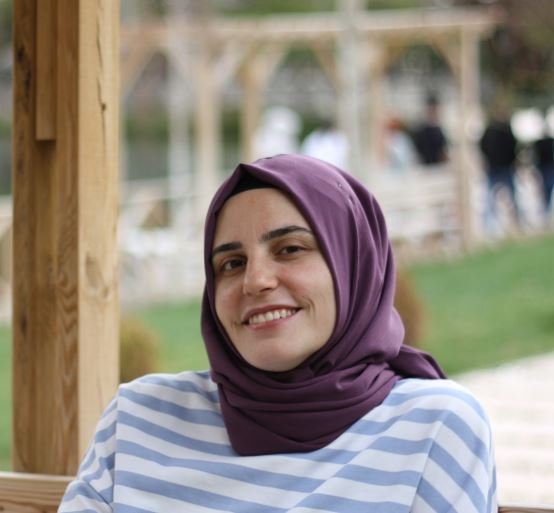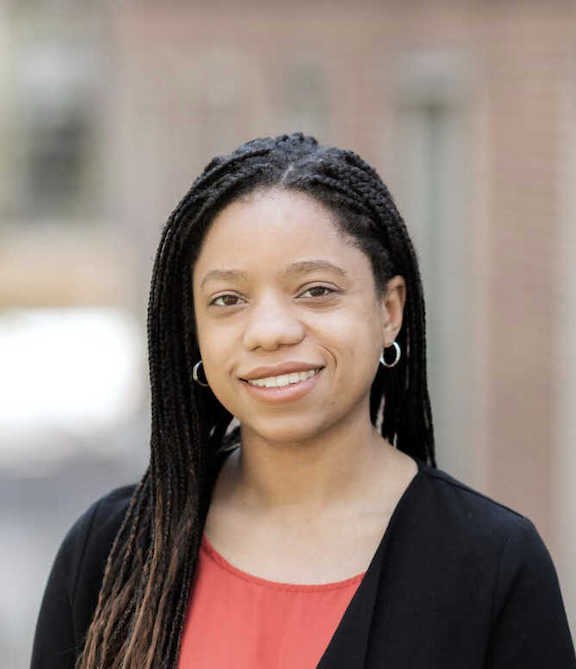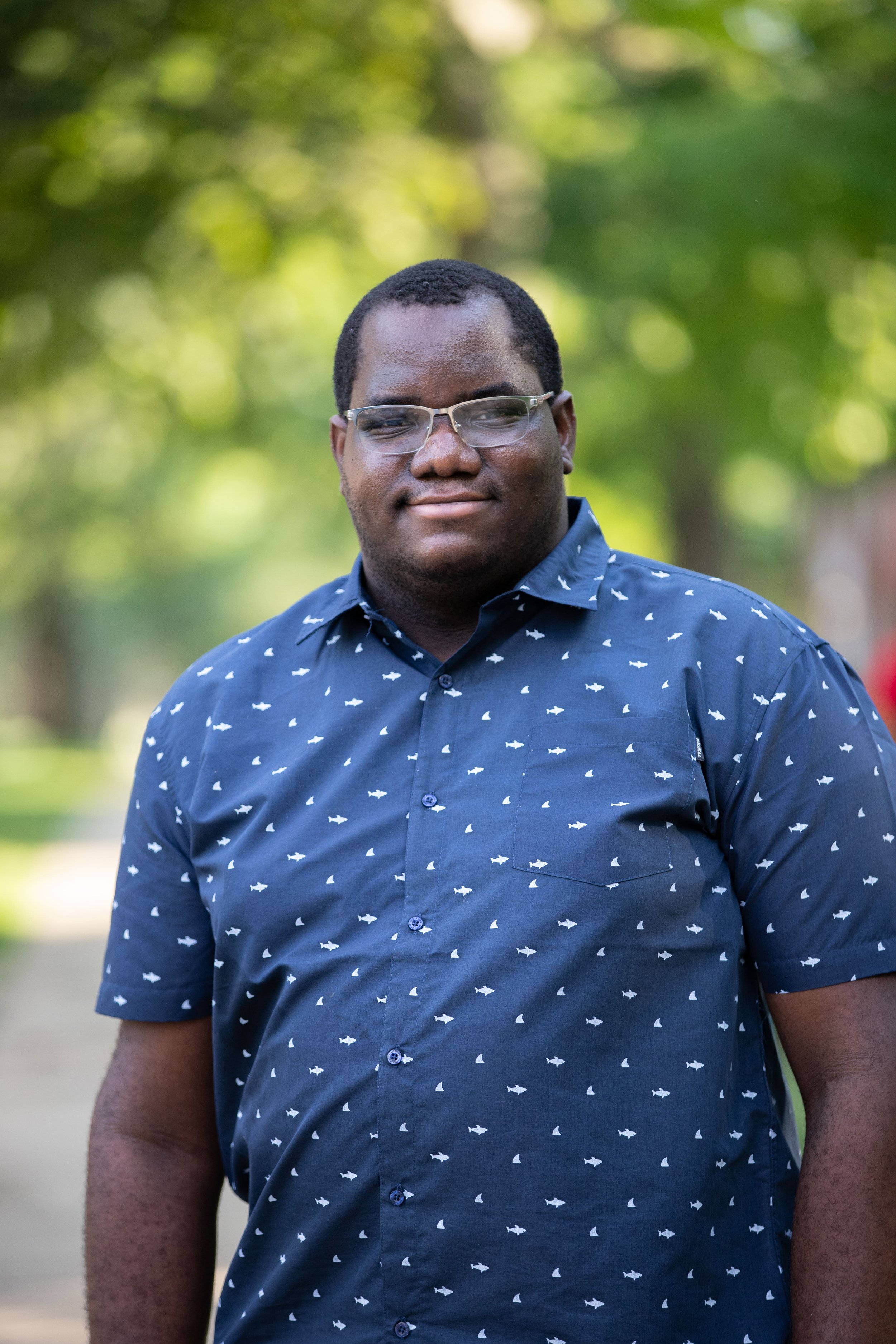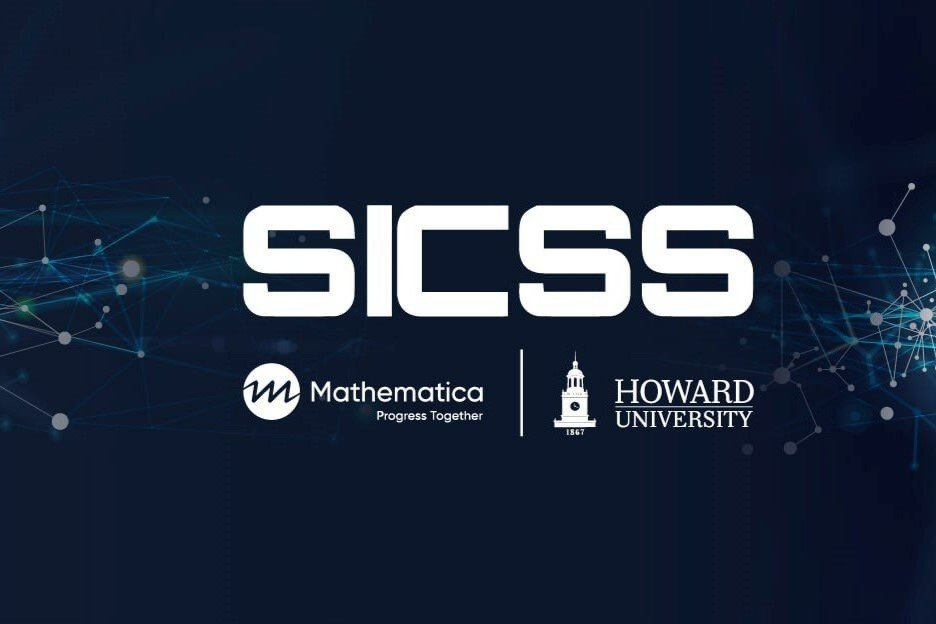SICSS-Howard/Mathematica Alumni Receive 2023 Excellence in Computational Social Science Research Awards
Howard University
This blog is part of a 3-year ongoing series “The Future of Computational Social Science is Black” about SICSS-Howard/ Mathematica, the first Summer Institute in Computational Social Science held at a Historically Black College or University. To learn more about SICSS-H/M’s inaugural start, read the 2021 blog “Welcome SICSS-Howard/ Mathematica 2021” or our first blog “Uncovering new keys to countering anti-Black racism and inequity using computational social science.” If you are interested in applying to participate in SICSS-H/M 2024, check out our website.
The 2023 SICSS-Howard/Mathematica Excellence in Computational Social Science Research Fund
2023 marks the third year the Summer Institute in Computational Social Science sponsored by Howard University and Mathematica (SICSS-Howard/Mathematica) site awarded the Excellence in Computational Social Science Research to outstanding alumni. In the final days of our inaugural institute, SICSS-H/M 2021, our financial sponsor Mathematica made a generous donation to create the SICSS-Howard/Mathematica Excellence in Computational Social Science Research Fund to support innovative research projects originating from our site. The first fund of its kind at a SICSS site, this Mathematica funding manifests our belief that financial barriers should not stand in the way of imminent discoveries.
While we are following closely in the footsteps of the SICSS Umbrella organization, which provides team funds, we also wanted to provide funding for individuals. We also are the first site to commit to continue making funds available for alumni as well as current SICSS-H/M participants as their careers progress.
Background and Excellence in Computational Social Science Research Award Selection Criteria
Applicants applied for awards between $200-$2,500 but could have received more if the project warranted it – particularly if the applications involved a large number of applicants from the SICSS-H/M community or created a common good (e.g. a database, dashboard, or tool).
To be eligible for this funding, individuals had to be alumni of our 2021, 2022, or 2023 site, and teams had to have at least two alumni if there were non-participants involved. A SICSS alumnus must also be in a leadership role (e.g. first author of a project, or lead developer of a new tool). All research projects needed approval from the Institutional Review Board of the university or universities associated with the lead researchers on each team.
Proposals were evaluated according to several principles: 1) the importance of the project to computational social science; 2) the quality of the research design proposed; 3) the connection to the SICSS-H/M theme of countering anti-Black racism and inequity; and 4) benefit to the SICSS-H/M or broader SICSS community. Priority was given to projects following the SICSS-H/M theme in the form of open-access tools, data, or other resources that stood to benefit larger groups of people either within or outside the SICSS sites or projects that extended existing research or methodologies to include underrepresented groups.
Inaugural Excellence in Computational Social Science Research Award Winners
After carefully reviewing each application, two group projects and nine individual projects were awarded. The SICSS-Howard/Mathematica Excellence in Computational Social Science Research Fund 2023 award winners are as follows:
SICSS-H/M Alumni Individual projects
Uncovering Whether Anti-Black Racism Exists in The Decisions to Include Certain Videos in Police Department Press Releases
Andrea Adams, Assistant Professor, University of the District of Columbia
"I am so excited to continue my journey in the Computational Social Science field and to work and support the SICSS Howard Mathematica family.”
Inside DH: An Online Platform for Sharing Information And Building Networks Among Digital Humanities And Computational Social Science Researchers
Rumeysanur Dogan, PhD candidate, Marmara University
“Inside DH is a voluntarily organized website in the aim of developing digital research techniques and networks of scholars of humanities and social sciences. Thanks to this grant, we will develop features of our website and organize open consultation sessions.”
Determinants of Artificial Intelligence (AI) Capabilities in Healthcare: The Case of Ethiopia
Dereje Ferede, PhD student, Addis Ababa University
“I am really grateful for the financial support I received from SICSS-Howard/Mathematica and feel incredibly humbled to have my work acknowledged in this exceptional manner. I will use this financial assistance to attend conferences and conduct a thorough data gathering across several industries.”
Global Crowns: Emotions Surrounding Natural Hair of Black Women around the Globe
Nicole Jenkins, Assistant Professor, Howard University
“I am thrilled to receive the SICSS-Howard/ Mathematica Excellence in Computational Social Sciences Research Fund Award for 2024, which marks a significant milestone in my research journey. This award not only validates our work but also will support us to further develop our website for multilingual participation, enhancing accessibility and inclusivity in the research project.”
Measuring Legislative Attention to Race
Amber Mackey, PhD candidate, University of Pennsylvania
"This generous grant will allow me to expand my data collection in ways that would not have been possible before. As I wrap up my dissertation, this funding will allow me to strengthen my final analyses and prepare for future projects."
Compassion Fatigue Among Child Protection Service Workers Who Work in Urban Areas
Rashun Miles, PhD candidate, University of Mississippi
“Since my time as a SICSS Fellow, I have been working towards becoming a computational social scientist; I feel like this award is a step in the right direction. I will use the funds to purchase software to assist in analyzing qualitative data of child protection service workers who work in urban areas.”
Financial Reports and Common Ownership: An Analysis of the Mechanisms Common Owners Use to Induce Anti-Competitive Behavior
Kevin Smith, Assistant Professor, Beloit College
"I am thrilled to receive this research funding award and I am so grateful to SICSS-Howard and Mathematica for this amazing honor. This award will help me in my research that seeks to unravel the intricate dynamics and complexities between large institutional investors and the firms they invest in.”
Reimagining Postpartum Care for Black Birthing people in California; improving models of care and policy implications
Renee Clarke, DrPH candidate, University of California Berkeley
“Thank you to SICSS Howard Mathematica for this funding opportunity! This funding will be used for research participants and to help with preparation materials throughout the research process.”
Transnationalizing Race and Antiracism: Understanding Latin American States’ Afro-descendant Inclusion Measures after the WCAR, 2001-2021
Kristina Lee, PhD student, Northwestern University
"I look forward to using the money I've been awarded to gather more archival materials in Mexico City this spring. As a historical sociologist, it's an exciting time to be bringing computational text analysis methods into my subdiscipline in methodologically and theoretically innovative ways."
SICSS-H/M Alumni Team projects
From Diagnosis to Early Intervention: Experiences of Parents of Children with Diagnosed Medical Conditions
Nayantara Biswas, PhD candidate, Clark University
Asha Yadav, Postdoctoral Associate, University of Florida
"Our study will examine the experiences of families with children with disabilities as they navigate the process of identification and referral from pediatricians to early intervention programs. This research grant plays a crucial role in enabling us to incorporate the voices of parents into our study, thereby making a significant contribution."
Solidarity Analysis in the Media Using Machine Learning: A Case Study of the Ukraine War James Asare
James Asare, PhD student, Washington State University
Joyonna Gamble-George, Associate Research Scientist, Yale University
“We are deeply grateful and thrilled to be recognized with the SICSS-Howard/Mathematica Excellence in Computational Social Science Research Fund award. The award will enable us to expand our data collection efforts, refine our analysis, and share our insights with the broader community, contributing to a better understanding of media narratives and complex social phenomena through computational methods.”
Until Next Time
The SICSS-H/M team wants to again congratulate our 2023 awardees. Additionally, to learn more about the 2023 awardees and their project updates, check out the “Funded Alumni Research in Progress” live Q&A with the 2023 SICSS-H/M Participants, as well as prior blogs and videos about funding in 2022.
The Excellence in Computational Social Science Research Fund application will once again be available for SICSS-H/M participants and alumni to encourage engagement across alumni classes during the 2024 institute. We look forward to seeing more exceptional proposals!
For more information about SICSS-Howard/Mathematica, check out our website, follow us on Twitter, like us on Facebook, and join our email list. The application for SICSS-Howard/Mathematica 2024 is open! Apply now!
About the authors
Naniette H. Coleman is a PhD candidate in the Sociology Department at the University of California, Berkeley and the founder of SICSS-Howard/Mathematica. Her work sits at the intersection of the sociology of culture and organizations and focuses on cybersecurity, surveillance, and privacy in the US context. Specifically, Naniette’s research examines how organizations assess risk, make decisions, and respond to data breaches and organizational compliance with state, federal, and international privacy laws. Naniette holds a Master of Public Administration with a specialization in Democracy, Politics, and Institutions from the Harvard Kennedy School of Government, and both an M.A. in Economics and a B.A. in Communication from the University at Buffalo, SUNY. A non-traditional student, Naniette’s prior professional experience includes local, state, and federal service, as well as work for two international organizations, and two universities. Naniette is also passionate about the arts.
Bhuvika Jaiswal earned her undergraduate degree in Data Science and Economics from the University of California, Berkeley. She currently serves as a research assistant, in the AAC&U award-winning, Berkeley-based Interdisciplinary Research Group on Privacy/Coleman Research Lab.



















